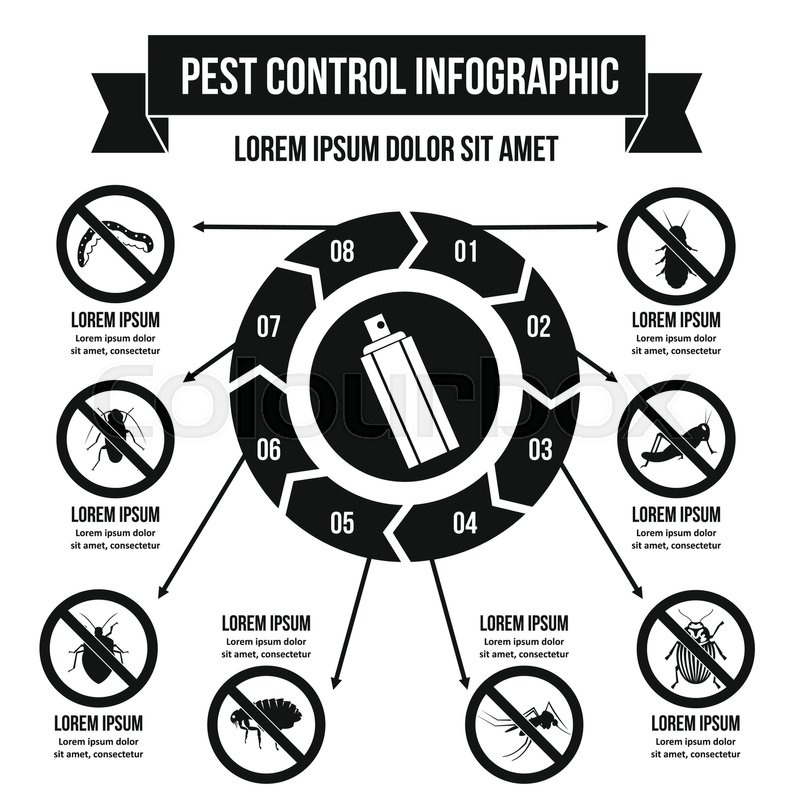Past The Spray: Checking Out Advanced Techniques Utilized By Pest Control Specialists
Past The Spray: Checking Out Advanced Techniques Utilized By Pest Control Specialists
Blog Article
Short Article Produced By-Tran Stewart
Are you tired of relying exclusively on sprays to deal with insects in your home or workplace? While just click the up coming site can be effective, pest control professionals have created advanced methods that surpass just splashing chemicals.
These techniques not only provide more reliable and durable options, yet likewise concentrate on reducing making use of hazardous pesticides. By checking out these sophisticated methods, you will find an entire new globe of bug control approaches that are not just efficient, yet likewise eco-friendly.
So, are you ready to take your insect control video game to the next level?
Integrated Insect Management (IPM)
If you're seeking an effective and environmentally-friendly technique to pest control, Integrated Parasite Monitoring (IPM) is the service you need. IPM focuses on long-lasting prevention and monitoring of bugs, as opposed to just depending on pesticides. This approach thinks about the certain needs and habits of pests, as well as the surrounding atmosphere.
By using a mix of methods such as biological control, habitat adjustment, and targeted pesticide usage, IPM aims to minimize the reliance on chemical treatments and decrease injury to non-target organisms.
One essential aspect of IPM is monitoring and identifying insects precisely. This includes consistently evaluating and examining the pest populace, in addition to identifying the specific types existing. By understanding the biology and actions of parasites, parasite control experts can develop targeted strategies to interrupt their life process and decrease their numbers.
One more essential aspect of IPM is making use of non-chemical control approaches whenever possible. This can include physical obstacles, such as installing screens or securing splits and openings, to avoid insects from getting in structures. Additionally, social practices, like proper cleanliness and waste administration, can aid remove parasite food sources and reproducing premises.
When chemicals are necessary, IPM focuses on utilizing them sensibly and as a last resource. This suggests selecting the least hazardous and most effective alternative, applying it precisely and only to influenced locations, and complying with all safety and security standards. By lessening pesticide usage, IPM decreases the possible threats to human health and wellness and the environment.
Biological Control
To additionally improve the efficiency of Integrated Insect Administration (IPM), the next subtopic we'll check out is the approach of biological control. This technique makes use of all-natural killers or bloodsuckers to regulate bugs.
Here are four vital aspects of organic control:.
1. Intro of all-natural enemies: In this approach, helpful bugs or microorganisms are introduced to the area infested with bugs. These all-natural adversaries take advantage of the pests, helping to reduce their populace.
2. Preservation of all-natural adversaries: Instead of introducing new microorganisms, this approach focuses on developing an ideal setting for existing beneficial insects. This can be achieved via supplying food, sanctuary, and water resources.
3. Augmentation: Here, the number of all-natural enemies is increased synthetically by breeding and releasing them into the ravaged area. This aids to swiftly minimize the pest population.
4. Push-pull method: This strategy integrates repellents and attractants to control the actions of parasites. Repellents press insects away from crops, while attractants entice them towards trap plants or areas where they can be quickly regulated.
Environment Modification
Habitat alteration plays a vital role in pest control by altering the environment to prevent pest invasions. By making changes to the physical characteristics of a room, you can create an inhospitable atmosphere for parasites, making it harder for them to make it through and flourish.
One usual technique of habitat adjustment is eliminating or decreasing possible food resources for pests. https://how-to-remove-a-snake-fro73940.get-blogging.com/26247940/5-signs-you-required-to-call-bed-pest-pest-control-specialists can include proper waste monitoring, securing containers, and cleaning up food crumbs.
Furthermore, eliminating or minimizing locations of standing water can aid manage insects like insects.
Changing the landscape by trimming trees and bushes far from buildings can likewise avoid insects from accessing your residential or commercial property.
Conclusion.
So there you have it - the innovative strategies used by insect control professionals surpass just splashing chemicals. Integrated Insect Management (IPM) integrates numerous approaches to successfully regulate insects, while biological control takes advantage of natural enemies to maintain bug populaces in check.
Habitat alteration additionally plays an essential duty in preventing bug infestations.
Did https://www.newsweek.com/wildlife-sanctuary-may-have-euthanize-animals-close-down-after-neighbor-complains-smell-1715405 recognize that according to a research study, executing IPM techniques reduced pesticide use by approximately 71%? This not only safeguards our wellness and the setting however additionally conserves money in the future.
